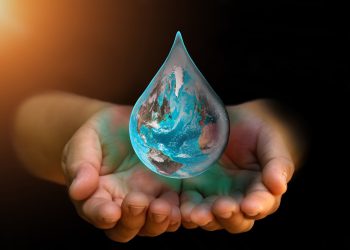Last updated on March 29th, 2025 at 01:18 pm
In an era when the spectre of climate change looms large over our collective future, water scarcity has emerged as one of the most pressing challenges facing humanity. Water, the lifeblood of our ecosystems and societies, is under unprecedented stress due to the twin pressures of growing economies and expanding populations. With 2.2 billion individuals deprived of clean drinking water and an alarming 3.5 billion people lacking safely managed sanitation facilities, the urgency to address this crisis has never been more critical.
Understanding the Scale of the Crisis
The implications of water scarcity extend far beyond the immediate challenges of ensuring access to this essential resource. As highlighted in the United Nations World Water Development Report 2024, the ramifications are vast, affecting geopolitical stability, human rights, and social structures. Particularly vulnerable are girls and women, who bear the brunt of the crisis, especially in rural areas where the responsibility of water collection predominantly falls on them. The laborious task of fetching water not only consumes several hours of their day but also exacerbates the risk of them dropping out of school, further entrenching gender inequalities.
Read: Seawater Desalination: Tapping into Seawater’s Potential for Drinkable Water
Geopolitical Tensions and Human Rights
The strain on water resources is not merely an environmental issue but a catalyst for conflict and instability. Regions suffering from water scarcity often witness heightened geopolitical tensions as states grapple with allocating this scarce resource. Moreover, the lack of access to clean water severely undermines human rights, disproportionately affecting vulnerable populations and marginalizing the position of girls and women within society.
The Role of Climate Change
Climate change exacerbates the water crisis, increasing the frequency and severity of droughts and floods. This erratic climate behavior leads to more pronounced wet and dry weather events, further straining already scarce water resources. The impact of global warming on water scarcity underscores the interconnectedness of these global challenges and the need for integrated solutions.
Read: Top 10 Reasons Why Purified Water Should Be Your Drink of Choice
Economic Implications and the Path Forward
The economic implications of water scarcity are profound, with poorer countries facing the greatest difficulties in adapting to these challenges. The UN report estimates that providing safe drinking water, sanitation, and hygiene in 140 low- to middle-income countries would require an annual investment of $114 billion. However, the benefits of such investment would far outweigh the costs, contributing to global prosperity and peace.
International Cooperation: A Crucial Step
Given that more than 60 percent of all freshwater resources are shared by two or more countries, international cooperation is vital for the sustainable management of water resources. While 153 countries share water resources, only 24 have signed cooperation agreements covering all their shared waters. Strengthening these agreements and expanding participation in conventions such as the UN Water Convention, which facilitates responsible joint management of water resources, is imperative for addressing the global water crisis.
Conclusion: Water for Prosperity and Peace
The UN World Water Development Report 2024, titled “Water for Prosperity and Peace,” underscores the critical role of water in achieving global stability and prosperity. As we face a future marked by increasing water scarcity and the challenges of climate change, the need for comprehensive, integrated solutions has never been more pressing. Through international cooperation, sustainable management practices, and significant investment in water infrastructure, we can address the root causes of water scarcity and build a more equitable, peaceful world.
References:
https://www.aljazeera.com/news/2024/3/22/increasing-water-scarcity-fuelling-more-global-conflicts-un-report-warns
https://www.unwater.org/publications/un-world-water-development-report-2024
https://unesdoc.unesco.org/ark:/48223/pf0000388948










